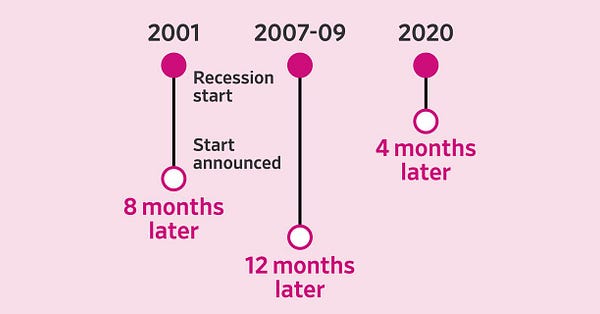Riding The Wave News Summary #65
New bill aims to give CFTC more authority to regulate crypto markets, Solana's SOL Token Holds Price Support Despite Hack, & more
Welcome to Riding The Wave. If you have questions or feedback, please reply to this email. If you are new to the Newsletter, please check out what we provide on our about page and consider subscribing. Within the Newsletter, I provide News Summaries, Weekly Status Updates, & Deep Dive Articles on Specific Topics (Ex: How do I pick which coins/tokens to buy?). More details here
News
Table of Contents
Tweets
New bill aims to give CFTC more authority to regulate crypto markets
Ethereum Name Service Domain Registrations Hit All-Time High as Merge Approaches
Tweets
















New bill aims to give CFTC more authority to regulate crypto markets
Senate Agriculture Committee Chair Debbie Stabenow (D-MI) and Senator John Boozman (R-AR) are proposing a new bill that would give the Commodity Futures Trading Commission (CFTC) more regulatory authority to oversee crypto markets.
The bill would set a national regulatory standard for crypto, define which tokens would fall under the digital commodity category, and require all crypto trading platforms to register with the CFTC. Crypto players will be held to the same rules as traditional financial brokers and trading platforms that facilitate trading in commodities spot markets.
The bill amends the definition of a commodity to include “digital commodity,” which applies to some crypto tokens. Bitcoin and ether, for example, are included in the definition of commodities while securities are excluded.
The bill also introduces new categories for digital commodity brokers, digital commodity custodians, digital commodity dealers, and requires them to register with the Commission.
Under the legislation, crypto trading platforms would be required to monitor crypto trading and protect investors from abuse, and capture and publish trading information in a timely manner. Crypto brokers and dealers would be required to offer fair prices, keep records of all digital commodity transactions, create risk management systems, safeguard against cyberattacks, and provide information to the Commission upon request.
Crypto trading platforms would also have to disclose conflicts of interest and the risks of trading crypto tokens.
The bill notes crypto miners would not have to register, noting that mining activity alone is not sufficient to trigger registration as a digital commodity platform.
Regulators focusing on creating new categories instead of forcing all the new inventions crypto brings into old boxes is definitely the right path to take. In prior bill proposals, regulators were considering holding miners to the same level of KYC requirements as exchanges which clearly shows how ridiculous not making new boxes for the crypto space is.
Solana's SOL Token Holds Price Support Despite Hack
Solana's SOL token held on to a critical support level early Wednesday even as a multimillion-dollar hack in the platform saw several investors vent frustration, saying they would consider shorting the cryptocurrency.
The exploit saw an unknown attacker drain at least $5 million worth of SOL, SPL and other Solana-based tokens from the Phantom and Slope digital wallets.
SOL's losses appear to be muted, considering hacks and exploits have historically led to double-digit price slides in tokens associated with victim crypto platforms. Even so, the hack is terrible optics for the world's fifth-largest smart contract blockchain, which promises faster and cheaper transactions than Ethereum. Solana's several network outages in the past 12 months have already dented its appeal as an alternative to the Ethereum blockchain.
What's helping the token stay resilient? According to observers, SOL's oversold status and continued holding by large investors, or whales, seem to be supporting the cryptocurrency.
Issues like the above are part of why the crypto community pushes so hard for investors to use trusted exchanges or to set up hardware wallets instead of just digital wallets. Long-term hardware wallets protect you from getting caught by a momentary oversight that may lead to digital wallets being drained, like in this case, due to no fault of your own.
Hackers Return $9M to Nomad Bridge After $190M Exploit
Keep reading with a 7-day free trial
Subscribe to Riding The Wave to keep reading this post and get 7 days of free access to the full post archives.






